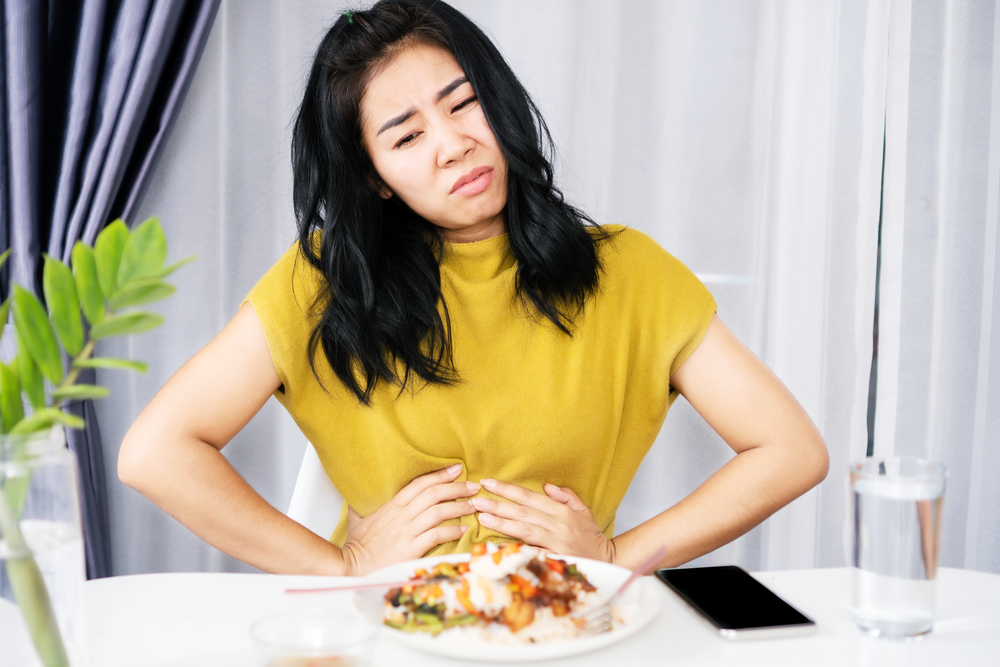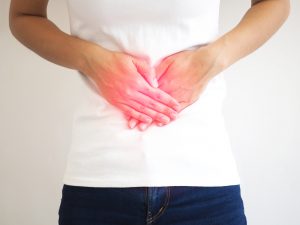What are the causes of stomach cramps after eating?
Find out why you get abdominal cramps after eating
What are the causes of stomach cramps after eating?
Find out why you get abdominal cramps after eating
Occasional abdominal pains and cramps are something most of us are familiar with. These symptoms are mild and often go away after a while without medical attention.
If you are experiencing severe or consistent cramps after eating, however, it is cause for concern. Continuous cramps and tightness in the stomach can interfere with daily activities and your appetite. You may also have to be extra cautious of what you eat if you do not know the reason behind the cramps.
Continuous cramps are often a symptom of a medical condition and require the attention of a medical specialist.
Most of the causes behind stomach cramps after eating are related to your digestive tract.

Occasional abdominal pains and cramps are something most of us are familiar with. These symptoms are mild and often go away after a while without medical attention.
If you are experiencing severe or consistent cramps after eating, however, it is cause for concern. Continuous cramps and tightness in the stomach can interfere with daily activities and your appetite. You may also have to be extra cautious of what you eat if you do not know the reason behind the cramps.
Continuous cramps are often a symptom of a medical condition and require the attention of a medical specialist.
Most of the causes behind stomach cramps after eating are related to your digestive tract.

Overeating
Overeating is one of the most common causes of cramps and discomfort in the abdomen.
Eating too much at once causes the stomach to stretch causing discomfort. It is also caused by the bacteria in the digestive tract that starts working to break down the food that leads to gas and distention.




Food intolerances
Intolerances occur when the body lacks enzymes to digest certain types of food. If cramps keep happening when you only eat a certain type of food—most often food with low digestible carbohydrates—it may signify an intolerance to that food.
One of the most common types of intolerance is lactose intolerance or the difficulty in digesting the sugar in dairy products. Some other common foods that cause intolerances include food like apples, pears, cauliflower, and lentils.
Food allergies
Food allergies could be more severe than intolerances although their symptoms may be similar. Food allergies occur when the immune system identifies a certain food as a harmful substance and reacts unpleasantly.
In addition to cramps, you may experience bloating, itchy mouth, hives, facial swelling, diarrhoea, nausea, and vomiting as a result of food allergies.






Irritable bowel syndrome (IBS)
IBS is a disorder that occurs in the large intestine. If you have IBS, you may experience pains and cramps in the stomach after bowel movements or after eating food. Other symptoms of IBS include diarrhoea, constipation, bloating and tightness in the stomach, changes in the appearance of stools, and the presence of mucus in stools.
Coeliac disease
Pains and cramps in the stomach are common symptoms of coeliac disease which is a condition caused by gluten sensitivity. People with coeliac disease will have an immediate reaction to gluten found in food such as wheat, rye, barley, and oats.



Overeating
Overeating is one of the most common causes of cramps and discomfort in the abdomen.
Eating too much at once causes the stomach to stretch causing discomfort. It is also caused by the bacteria in the digestive tract that starts working to break down the food that leads to gas and distention.



Food intolerances
Intolerances occur when the body lacks enzymes to digest certain types of food. If cramps keep happening when you only eat a certain type of food—most often food with low digestible carbohydrates—it may signify an intolerance to that food.
One of the most common types of intolerance is lactose intolerance or the difficulty in digesting the sugar in dairy products. Some other common foods that cause intolerances include food like apples, pears, cauliflower, and lentils.



Food allergies
Food allergies could be more severe than intolerances although their symptoms may be similar. Food allergies occur when the immune system identifies a certain food as a harmful substance and reacts unpleasantly.
In addition to cramps, you may experience bloating, itchy mouth, hives, facial swelling, diarrhoea, nausea, and vomiting as a result of food allergies.



Irritable bowel syndrome (IBS)
IBS is a disorder that occurs in the large intestine. If you have IBS, you may experience pains and cramps in the stomach after bowel movements or after eating food. Other symptoms of IBS include diarrhoea, constipation, bloating and tightness in the stomach, changes in the appearance of stools, and the presence of mucus in stools.



Coeliac disease
Pains and cramps in the stomach are common symptoms of coeliac disease which is a condition caused by gluten sensitivity. People with coeliac disease will have an immediate reaction to gluten found in food such as wheat, rye, barley, and oats.



What are the treatments for stomach cramps?
- Mild abdominal cramps can be treated with home remedies or OTC medicine. Home remedies like apple cider vinegar, ginger, and chamomile tea, in particular, are known to relieve mild pains and bloating in the abdomen.
- Stomach cramps that occur as a result of allergies and intolerances can be avoided by dietary changes. After tests and diagnosis, your doctor will prescribe you a customised diet, limiting the foods that trigger the allergy.
- Dietary changes are also effective to control overeating. In cases where it is uncontrollable, it is recommended to consult a dietician or a therapist to identify the underlying cause for overeating.
- If you have IBS, your doctor may prescribe you special medication like fibre supplements, laxatives, or antidiarrheal medication. Pain-relieving medication will be prescribed for IBS patients experiencing severe pains, cramps, and bloating.
Explore our other posts on stomach cramps
Visit the Sydney Gut Clinic
If stomach cramps are persistent and if you experience them very often, it is necessary to treat the underlying cause behind them. Schedule an appointment with us to get an accurate diagnosis of your condition.
At Sydney Gut Clinic, we have a team of gastrointestinal specialists trained to identify the causes behind symptoms you experience and direct you to the best treatment options.
FAQ
Which foods can trigger abdominal cramps?
Refraining from eating food you are allergic to can help alleviate cramps. The most common foods that cause allergies are protein-based food like cow’s milk, eggs, peanuts, wheat, soy, fish, shellfish, and tree nuts.
In addition to this, limiting your intake of spicy and oily foods can also help alleviate stomach cramps.
How can you treat stomach cramps after eating?
There are many treatment options available depending on the cause of stomach cramps. The most common treatment options are:
- Consuming lactose-free food
- Gluten-free diets
- High-fibre diets
- Medication
When should you be concerned about abdominal cramps?
If your cramps continue after OTC medication and at-home remedies, seek medical attention. Additionally, cramps may signal a severe condition if you also experience the following symptoms:
- Severe diarrhoea
- Fever
- Severe pain
- Blood in stools
- Nausea
- Vomiting
Which conditions can cause stomach cramps?
Stomach cramps are often a result of your body reacting to medical complications in the digestive tract. Most of the time they are triggered as a result of certain types of food.
If cramps occur outside your dietary habits, it may mean a different gastrointestinal condition like inflammatory bowel disease, intestinal obstruction, or even food poisoning and intestinal infections. Visit a gastrointestinal specialist to get an accurate diagnosis of the stomach cramps you experience.
Consult our specialists for diagnosis and treatment of abdominal cramps
Sydney Gut Clinic services are only available to patients in Australia.









